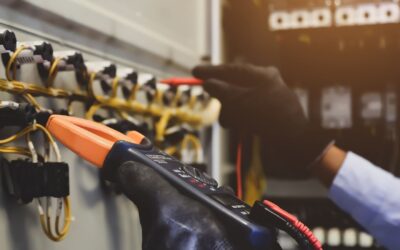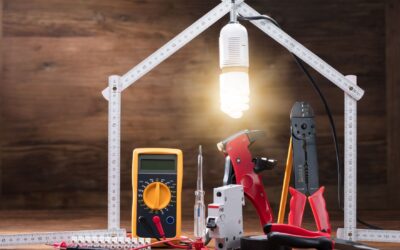Electricians repair and install electrical systems. Before you hire an electrician you need to understand the different types of contractors who work with electrical systems. The first thing you must determine is whether you need an electrician or an electrical contractor to do your project.
If you need any of the following jobs done, you can work with an electrician or an electrical contractor:
-
- Phone Wiring
- Thermostat Wiring
- Ceiling Fan Wiring
- Hot Tub Wiring
- Electrical Outlet Wiring
While you may think you can do these tasks yourself, the best thing to do is avoid problems by hiring someone who knows what to do. The electrician can do the job from A to Z while the contractor may supervise the job. The money you spend will be worth it due to not having to worry if something was done inaccurately that can cause a dangerous electrical fire or worse. Keep in mind that no license is required to wire your own home to get the jobs above completed but it’s better to be safe than sorry.
However, if you are building a new home or purchasing a new building, then you absolutely need to hire a licensed electrical contractor with specific experience. Inspections are required by all states and cities after the initial wiring is installed to ensure your safety. What type of license they need depends on the work to be done. There are many different designations such as Electrical Contractor, Residential Electrical Contractor, Class A Master Electrician, and so forth. Each area of the country may have different requirements and laws. A contractor will know more about the ins and outs of all jobs, and who to hire to do the job for you. Essentially the contractor will manage the electricians needed for each job.
Wiring a new home requires very technical and strategic planning skills. Today it includes so much more than it used to what with all the cable wiring, alarm wiring, and networking that goes on in homes as in businesses. Be sure to explain everything you want and expected results to your electrical contractor or electrician to be sure you haven’t left anything out that needs to be wired. Remember you might need wiring for:
-
- Computer Networking
- Smart Televisions
- Cable
- General & Specialty Lighting
- Alarm Systems
- Water Heaters
- Heating & Cooling Systems
- Laundry Room
- Kitchen with a number of appliances
- and More
- Go through each room of your house and ask yourself what type of writing is needed so that you don’t forget anything. Include your wish list on a separate sheet and discuss what that potential timeline might be. Leave no stone unturned.
Remember that electrical work is very technical and requires that the person doing it be well educated on and off the job. Most electricians start as apprentices, learning hands-on for approximately four years before they can even attempt to secure a journeyman’s license. In some states, an electrical contractor might not even have to be a licensed electrician first but the know-how to run the show and who to hire. So be careful in hiring the right person.
While an electrical contractor may have different requirements than a journeyman electrician the truth is, either an electrician or a certified electrical contractor can be used depending on the job specifics and size, and licensure. But, the electrical contractor will not always do the work directly; instead, they will be in charge of the job, appointing others to do the work.
With Tru-Matrix Contracting Services LLC we inspect and perform all the work ourselves. We do support small, locally-owned contractors and will subcontract to other electrical contractors our priority is providing top-notch services to our customers each and every encounter. We will always be onsite and in communication with you.



